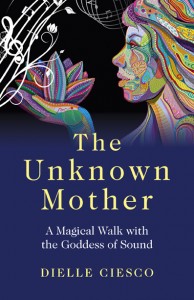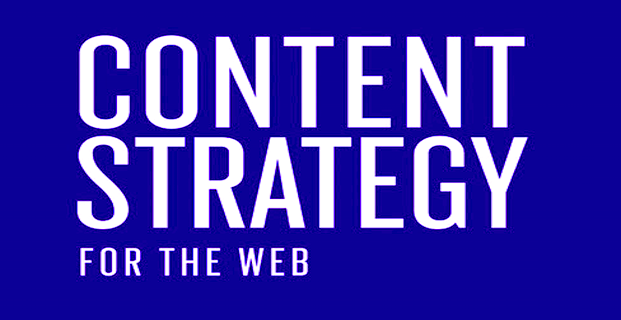by Mark Bloom | Jun 13, 2013 | Press Releases
What a Press Release Can Do and What It Can’t
Like blog posts, press releases often get a bad rap. “It’s tough to get noticed,” say some. “They are a waste of money,” say others. We’re here to set the record straight. It is tough to get noticed, but press releases aren’t a waste of money.

What’s a Press Release?
First, let’s define our terms. A press release is an article sent to the media by a company or organization wanting attention for something it considers newsworthy. There are two types of press releases: online and real-world. Both have pros and cons, of course.
Real-World Press Releases
A real-world press release gets sent to actual people: reporters, news station managers and magazine editors — those with a print edition product or a television or radio show. These are the people who decide what goes into print or out on the airwaves.
Ideally in this scenario, the business owner or public relations professional develops a relationship with the people working in the media. Then, when a press release is needed, it goes directly to the right person, who may view it more favorably than a cold call letter.
Obviously, real-world press releases work best for local news, where those relationships can flourish with the personal touch. Sending a real-world press release to a national audience is difficult without a public relations firm backing it. These firms exist because they have developed nationwide relationships with members of the media.
Online Press Releases
A press release directed to the Internet is a different animal altogether. Using a paid distribution service instead of a personal relationship, these press releases can gain worldwide access overnight. Better still, these press releases often remain visible (or at least searchable) for months or years or even longer.
The disadvantage is that they are impersonal and reach sometimes dubious outlets. Without a real person championing the release, they may be picked up by media desperate for any kind of copy at all — like business journals that reach mere hundreds of people… nationwide.
The Purpose of a Press Release
A press release, however it is distributed, should trumpet actual news. It should be directed to a select audience who might be able to use that news, or at least find it interesting. Often, that means a regional audience.
For example, a promotion to president of a nonprofit would interest business and nonprofit audiences. A new product that cures prostate cancer while restoring a full head of hair, on the other hand, would be of interest to roughly 50 percent of the world’s population.
Numbers Add Up
 Furthermore, firing one press release into the media jungle will not likely gain you instant recognition. If your company or organization produces worthwhile news, it may still take time to get noticed. Develop relationships with your local media correspondents. Be prepared to wait.
Furthermore, firing one press release into the media jungle will not likely gain you instant recognition. If your company or organization produces worthwhile news, it may still take time to get noticed. Develop relationships with your local media correspondents. Be prepared to wait.
Eventually, you will gain their attention. Eventually, you will be perceived as a reliable source. Eventually, your press releases will be published by the mainstream media. Eventually, your press releases will find their audience.
Before you blast a press release into the air, onto the page or into computers everywhere, consult a marketing or public relations professional. Make sure that the release is well written and targeted to the appropriate audience. Distribute it to the correct media. Finally, don’t expect the world to beat a path to your door.
For more advice about blog posts and press releases, contact us.
Ray Access is a content marketing firm that delivers targeted words to empower your business. Contact us about your specific project to receive a quote or discuss your needs. We write website copy, blog posts, e-newsletters and more. Everything we do is thoroughly researched, professionally edited and guaranteed original.
by Mark Bloom | Jun 6, 2013 | Blog Writing
Ray Access Works with You to Write Blog Posts
A common question we get asked is: “How do you go about writing blog posts for a new client?” Before we answer this very good question, let us provide some context.
What’s a Blog?
Blogs — originally called “weblogs” — began in the late 1990s as online diaries. Individuals wrote about their thoughts or experiences. They may have followed a theme or written free-style.
What made blogs different was that they were available to anyone through the Internet. In other words, these diary entries were public. Public and personal.

Business Blogs Arrive
So when business blogs eventually appeared, they had to go through several transmutations. What could a business say in a blog that would remotely seem personal? Businesses initially struggled with that question.
Business blogs matured into vehicles for outreach, consumer education, and industry insight. If they are well written and useful, these blogs reflect the personality of the company. They offer value and provide a place for interaction with some company personnel.
Today, a good business blog attracts search engines and potential customers alike while cementing the company’s authority in its given field. A useful blog benefits the company’s bottom line.
How We Work
So how does a third party, like Ray Access, even attempt to write blog posts for a company? What can a business owner expect from the process?
When we are hired to write a series of blog posts, we meet with company representatives to discover their target audience and dig into their field of expertise. Then we brainstorm a list of possible blog titles or topics. We present this to our client, who approves or selects enough to get us started. The company may also add to the list.
From there, it’s a straightforward process of research, writing, and editing. The first blog post we prepare requires a bit of back-and-forth with our client to refine the tone and the language, but we always present drafts well in advance of our deadlines for just this sort of issue.
Extra Credit
 The blog posts we write contain keyword phrases as naturally as possible. Our goal is to prepare blog posts that people can read. Search engines, while important, are not the primary audience. We can also supply an image with the article for no extra charge.
The blog posts we write contain keyword phrases as naturally as possible. Our goal is to prepare blog posts that people can read. Search engines, while important, are not the primary audience. We can also supply an image with the article for no extra charge.
Once our client accepts the blog post, it is usually the company’s responsibility to publish it. Then the cycle repeats itself, getting faster and faster with each iteration. When we run out of approved topics, we brainstorm another list. We will never run out of ideas. Never.
Now that you know how we work, try us out! We’ll even provide an estimate to write your business blog.
Ray Access is a content marketing firm that delivers targeted words to empower your business. Contact us about your specific project to receive a quote or discuss your needs. We write website copy, blog posts, e-newsletters and more. Everything we do is thoroughly researched, professionally edited and guaranteed original.
by Mark Bloom | May 16, 2013 | Announcement
Ray Access Offers Something for Everyone…
Linda and Mark, the principles at Ray Access, have been refining their list of services recently, and two things became clear:
- It was time to spread the word about all the good things we do, and
- It was time to offer a discount on our most popular service: writing blog posts.

Sprinkling of Services
For the full list of our services, visit our page for businesses or for agencies, but let us share with you here what we love to do:
We can also come up with blog ideas for you if you’re stuck gazing at an empty page. We are really good at brainstorming and thinking outside the carton. We guarantee you will want to develop some of the titles and topics we send you. Or you could hire us to write them too!
For New Clients Only
Now is time for savings! Normally, four blog posts for your business normally cost about $300, depending on their length, but now Ray Access is offering those four blog posts for only $199. That’s better than a 33 percent discount.
What’s the catch? You have to be a new client, one we’ve never worked for before. If your business has a website, and assuming you have a blog or want to start one, you are eligible for our new client discount. Simply contact us through the website and tell us you want the four-blog special, and we’ll contact you to arrange everything. What could be easier?
Ray Access is a content marketing firm that delivers targeted words to empower your business. Contact us about your specific project to receive a quote or discuss your needs. We write website copy, blog posts, e-newsletters and more. Everything we do is thoroughly researched, professionally edited and guaranteed original.
by Mark Bloom | May 10, 2013 | Editing
Write in Plain Language; It Helps Everyone
There is a movement gaining traction across America: writing in plain, understandable English. Plain language is, as William DuBay said, “a literary style that is easy to read because it matches the reading skill of the audience.”
Government agencies are adopting the tenets of plain language. Lawyers are hiring editors to “translate” their legalese into English that anyone with an eighth-grade education can understand. And more and more businesses are gradually coming around to the benefits of using plain English in their communications.
A New Wrinkle in Communications

In retrospect, it seems obvious that easily understood writing would help everyone — from those with a message to relay to those trying to read that message. The plain language movement’s goal is to make the written word easier to comprehend. Given that we are all inundated with messages throughout the day, making those messages clearer can make life simpler for many people.
Still, it has taken a surprisingly long time to get everyone to agree that documents should be written in plain English. Detail-oriented lawyers in private and public practice wanted foremost to close loopholes. Business writers assumed their audiences were highly educated. Training in clear communications did not exist.
The Movement Gains Ground
This is not a new phenomenon. Way back in 1972, President Richard Nixon issued a decree that the “Federal Register be written in layman’s terms.” The government — and future Presidents — have mostly continued to push for clearer and simpler written communications.
Like any grassroots democratic cause, the plain language movement has gradually gained momentum. People tired of the confusing status quo and asked for simpler content. They weren’t lazy; they needed to find meaning quickly so that they could make important decisions. Today, we can see the changes… in some places.
Writers still have work to do, but the benefits are becoming clearer as more research is done. For an introduction to plain language, check out the Plain Language Association InterNational (PLAIN) website. You can find cutting-edge information about and examples of plain language in the Wikipedia.
How This Affects You
Ray Access believes in plain language. We apply its principles in all the writing we do, matching our style to the reading skill of the intended audience, as Mr. DuBay recommends. We write for people, not search engines. Our writing is geared to attract more human eyes to your business, which can translate into more sales, greater visibility, and customer satisfaction.
In the process, search engines take note, too, which increases your website’s page rank. It’s truly a win-win scenario.
If you are ignoring your website, it’s likely ignoring you. Get the best value from your online assets. In plain English.
Ray Access is a content marketing firm that delivers targeted words to empower your business. Contact us about your specific project to receive a quote or discuss your needs. We write website copy, blog posts, e-newsletters and more. Everything we do is thoroughly researched, professionally edited and guaranteed original.
by Mark Bloom | Mar 20, 2013 | Content Provider
How to Protect Your Business’ Good Name
Recently, we came across a blog post by Rich Gorman on Tamar Weinberg’s blog, and we thought it an apt topic to share with you. Ray Access is a content provider. As such, we encourage our clients to post new content on their websites no less frequently than every week. This influx of fresh, relevant content attracts visitors, establishes your authority, and (as a cool consequence) improves the page rank of your website.
So, we are involved in the world of SEO (search engine optimization) only in a tangential way. We don’t claim to be SEO experts, although we are involved in improving a website’s SEO through our work. We like to keep abreast of the industry, though, which means we do a lot of reading.

In Gorman’s article, he writes about what to do when your website or your company is fairly or unfairly given a poor online review. Just as your blog posts are always available and never go out of print, so a bad review is potentially always available. As Gorman says:
“A sterling reputation is worth its weight in gold — figuratively speaking, of course. That’s why businesses work for years, sometimes even decades, to earn the public’s trust, and to gain as much consumer goodwill as possible. In this Digital Age, however, all of that hard work can be undone in an instant. It just takes one bad review.”
So what can you do? Gorman frames the issue:
“The obvious question, then, is how you can defend yourself. It goes without saying that you can’t exactly coerce people into giving you positive reviews, and you can’t get people to stop leaving reviews altogether. A bad review could appear at any moment; there’s nothing you can do to prevent it, or to erase it. What you can do is ensure that it’s never seen by anyone.”
In other words, if you post content that floods the search engines, that comment is liable to end up on Page 4 of the search results, where almost no one will find it. That’s where we come in. Ray Access provides content — whether you need it fast to defend your company’s reputation or whether you are just starting to build your brand. A continual flow of useful content works for you on many levels.
Click here for the complete article or go to: www.techipedia.com/2012/bad-reviews/.
Ray Access is a content marketing firm that delivers targeted words to empower your business. Contact us about your specific project to receive a quote or discuss your needs. We write website copy, blog posts, e-newsletters and more. Everything we do is thoroughly researched, professionally edited and guaranteed original.
by Mark Bloom | Mar 2, 2013 | Content Marketing
How to Get Ranked Higher for Search Results
This is the question on every business-owner’s mind. If a company has a website — and what serious company, no matter how small, doesn’t? — the visibility of that website becomes a major concern.
When a business thinks about ways to grow — ways to advertise its products or services, and ways to attract new customers — a new hot website seems like a no-brainer. It’s the old “If you build it, they will come” philosophy. In reality, however, the world doesn’t work that way.

So, after an initial push to launch the website, it just sits there. All optimism soon fades. The site is written off as a loss.
It doesn’t have to be that way, of course. Building the site is just the first step. There are ways to nudge the search page listing toward the top (aka, increasing the page rank of the website, getting more potential customers to look at your site, and then turning them into clients).
Build It the Right Way
We recently took a seminar put on by Chris Kaminski of Lone Bird Studio. He’s been in marketing for 30+ years and in the website end of it for 13+ years. He knows of what he speaks.
Chris ran through a litany of proper ways to build and code a website. Part of the trick is to develop and employ the right keywords, not only for your business, but for each page of the website. Everything has to be relevant, and every keyword has to match.
But That’s Not Enough
The really interesting thing about the seminar, however, was what Chris had to say about the key elements of the keyword use (and we’re paraphrasing here): “Stuffing keywords into text on the page no longer works. In fact, it may work against you. The copy has to flow naturally.”
To put that in layman’s terms, he said, “Search engines today are content-driven… It’s all about the quality of the content.”

What It’s About
This confirms what Ray Access has repeated here many times: the best way to raise your page rank is to provide quality content — useful and relevant information — to your website continually over time. It’s the best way to attract visitors, establish your authority, and yes, move your listing up on the search pages. Find out how Ray Access can help your website’s page rank.
Having your website rank higher based on the site’s content is not only the most effective way to do it, but it’s also the cheapest way to do it. There’s also a term for it: it’s called organic. Organic means that you’re putting the time into your website to add value. Search engines, regardless of the current algorithm for determining rank, will always be attracted to organic value. Or as Chris put it: “Organic buzz rarely comes without quality content.”
Ray Access is a content marketing firm that delivers targeted words to empower your business. Contact us about your specific project to receive a quote or discuss your needs. We write website copy, blog posts, e-newsletters and more. Everything we do is thoroughly researched, professionally edited and guaranteed original.
by Mark Bloom | Feb 7, 2013 | Website Content
Your Website Content Will Reign During 2013

Most of you know that we’ve repeated our belief that content is king to our friends, our business associates, and of course, our clients. In fact, we’ll tell anyone, including you.
The best way to gain exposure on the Internet is to provide good, informative content on your website, delivered consistently over time. Good quality content is the absolute best way to reach your marketing goals and to establish your company as an authority in your field.
You may think we say this because we’re Ray Access and we’re in the business of providing content, but you’d be wrong. We say it because it’s true, and we’re not the only ones to assert it. We follow the trends of the online marketing industry, and we’ve found marketing experts, trendsetters, and bloggers who agree with us.
While we’re not privy to whatever Google or Bing has in store for the future of search engines, we believe sincerely that good writing and useful information will win in the end.
 Keywords will always have value and backlinks work for now, but search engines keep refining their criteria. It always comes back to quality content, delivered consistently. Now others are confirming what we already knew. eMarketer.com recently wrote that content is the number 1 marketing priority for 2013, overtaking the focus on social media.
Keywords will always have value and backlinks work for now, but search engines keep refining their criteria. It always comes back to quality content, delivered consistently. Now others are confirming what we already knew. eMarketer.com recently wrote that content is the number 1 marketing priority for 2013, overtaking the focus on social media.
Getting on social media has been an industry mantra for the past several years, but eMarketer.com stated that “companies understand social media’s potential value in engaging customers and generating leads, but are having trouble developing effective methods of measuring return on investment.”
In other words, an actual visit to your website has value; a “like” really doesn’t. And even when you do develop a healthy social media presence, what are you going to give your followers? You’ve got to give them reasons — new reasons every day — to keep coming back for a visit. It’s your content that not only lures them in the first place, but keeps them coming back until you become a household word.
Ray Access is a content marketing firm that delivers targeted words to empower your business. Contact us about your specific project to receive a quote or discuss your needs. We write website copy, blog posts, e-newsletters and more. Everything we do is thoroughly researched, professionally edited and guaranteed original.
by Mark Bloom | Jan 21, 2013 | Announcement
Mark Bloom Recently Edits a Published Book
Joseph Campbell’s Wisdom Hits Close to Home
Two Asheville locals “follow their bliss” to create an unusual yet meaningful book.
“Follow your bliss and the universe will open doors where there were only walls.” – Joseph Campbell (1904–1987)

Mark Bloom and Linda Ray follow their bliss as the duo behind Ray Access. But both find other outlets for their creative and professional passions. For Mark, editing books (fiction and nonfiction) allows him to focus all his talent on a goal with two parts: helping an author create a marketable work and improving the author’s skill set.
Asheville author Dielle Ciesco took the words of mythologist Joseph Campbell to heart and started writing. Mark gave her words the heartbeat needed to make them come alive. By following their bliss, the two created a book that was accepted by the first publisher it was presented to. The results are apparent in the work, The Unknown Mother: A Magical Walk with the Goddess of Sound, published this month (January 2013) by Roundfire Books (ISBN: 978-1780996318).
 The book personifies the kind of collaboration that makes Asheville a unique and thriving arts community. A vocal activist, healer, and teacher, Ciesco’s book is based on a lifetime exploring the mysteries and subtleties of the power of voice, the meaning of words, and the properties of sound. But writing the book became a journey in itself.
The book personifies the kind of collaboration that makes Asheville a unique and thriving arts community. A vocal activist, healer, and teacher, Ciesco’s book is based on a lifetime exploring the mysteries and subtleties of the power of voice, the meaning of words, and the properties of sound. But writing the book became a journey in itself.
Ciesco at first tried to write an educational book to capture all the archaic research and practical experience she had acquired. After struggling with it for years, she had a brainstorm to turn the information into a novel.
“The book took on a life of its own,” Ciesco says. But the change to fiction also led to new challenges. Novels from unknown writers aren’t the easiest to get published. “I knew I had to present a very clean package and was willing to invest in that,” she says.
To realize her bliss in print, she turned to Asheville editor Mark Bloom, who does work for Ray Access, a local web content provider. Bloom’s passion lies in editing. His bliss led him through many careers, all involving the written word, including a stint editing at Lark Books.
“Working with Mark was easy,” Ciesco says. “He would take a sentence or paragraph and make it say exactly what I wanted with precision and flow. He had some really great ideas that made the book better.” When asked about the collaboration, she admits, “I really had no idea how deep the editing process could go. Mark made sure the story was unified and was a big support in making my characters more interesting.”
The book represents Ciesco’s life work, which is far from complete. “Going through the editing process has definitely made me a better writer,” she says. “I really internalized the things I learned from Mark, and that’s going into my second book right off the bat.”
About Dielle Ciesco: Dielle specializes in the transformational power of the voice to heal and connect us with our own Divinity. With over 18 years experience as a performer and healing facilitator, she teaches, writes, sings, creates art, and helps clients. Contact her at info at thevoiceoflife.com.
About Mark Bloom: A professional writer since 1989, Mark has contributed to five published books. As an editor, he loves guiding authors to improve their work and their skills. He has a number of projects in various stages of development. Contact him at mark at rayaccess.com.
Ray Access is a content marketing firm that delivers targeted words to empower your business. Contact us about your specific project to receive a quote or discuss your needs. We write website copy, blog posts, e-newsletters and more. Everything we do is thoroughly researched, professionally edited and guaranteed original.
by Mark Bloom | Nov 6, 2012 | Website Content
What Is a Content Strategy for Your Website?
Having a content strategy simply means planning for the creation, delivery, and maintenance of fresh online content. It’s a process that defines the what, why, how, and when for developing the content you use to market your business. Your content strategy must be a repeatable system that allows you to most effectively take advantage of your website and your presence within the Internet.

Simply put, a content strategy is an plan for communicating with your online audience. While your content strategy usually begins with your website, it certainly shouldn’t end there. To be at all effective, you must embrace all digital methods of communication.
Why Do You Need a Content Strategy?
A content strategy allows you to plan ahead to develop and produce fresh content over time for your online audience. This content, delivered consistently, provides specific and measurable benefits:
- Search Engine Optimization: What many SEO experts may not tell you is that Google rates new, relevant website content very high in its super-secret algorithm for ranking. Every time you post new content, search engines find it and index it, which gradually increases your ranking.
- Customer Engagement: Fresh content is but one of the many ways online visitors find your website. Continuing to post articles of interest engages your audience, keeping them on your website longer. Studies document that the longer visitors stay on your website, the more likely they will contact you, sign up for more information, or buy your product or service. And the goal of any business website is to turn eyeballs into dollar bills.
- Website Visibility: A content strategy allows you to employ every means at your disposal for a single purpose. For example, if you post a blog about a specific topic, you can promote it through your social media accounts. Ultimately, every marketing campaign needs to be coordinated to point your audience to one place and/or encourage them to do a single thing (like go to your website). Thinking out your content goals in advance allows you to spend less time on each campaign while increasing the effectiveness of each.
- Business Authority: With each new piece of content you publish (assuming it is professional, useful, and on topic), your company gains credibility and respect. When you write to inform, and not just to sell, you become an authority in your field, which increases the effectiveness of each of the other three points.
What Does a Content Strategy Cover?
Your content strategy should cover everything digital. What do we mean by “everything digital?” Here is a far-from-thorough list of outlets and methods in which you can digitally communicate with your audience (which includes your customers, prospects, vendors, and even fans):
- Web page content
- Blog posts on your website
- Press releases
- Email newsletters
- Social media outlets, including:
- Facebook
- Twitter
- LinkedIn
- Google+
- Note: In this blog post, we focus on content strategy for your website; however, to learn more about the opportunities and challenges presented by social media, download our helpful Social Media DIY document on navigating social media.
Now, focusing on one outlet at a time, determine the following for each:
- Who is your specific audience for the outlet (e.g., existing customers or leads)?
- What are your goals within the outlet (e.g., finding or serving customers)?
- What kind of content should you create or update for each outlet (e.g., white papers or 144-character blurbs)?
- How often should you attend or post on that outlet (e.g., monthly or hourly)?
- Who will be responsible for creating the content (e.g., your marketing department or a hired gun)?
- What is the approval process for posting the content (e.g., editorial review or just initials at the bottom)?
- What action do you want readers to take at the end of each post (e.g., visit your website or buy your product/service)?
- How can you measure success (e.g., increased sales or website visits)?
While some of the different outlets seem very similar, make sure you carefully examine each to find the subtle differences. For instance, many novices link their Facebook, Twitter, and LinkedIn pages so they only have to post once to multiple outlets. Unfortunately, this is a fairly easy thing to accomplish, even for a novice.
 What you may not understand, however, is that these three different outlets cater to three different audiences, and these audiences have three different reasons for participating in each community. Think of how you personally (not professionally) use Facebook, Twitter, and LinkedIn. See the difference? If you don’t provide distinct audiences with the right information in the right way at the right time, you may miss your target market… or worse, alienate the very people you were trying to connect with.
What you may not understand, however, is that these three different outlets cater to three different audiences, and these audiences have three different reasons for participating in each community. Think of how you personally (not professionally) use Facebook, Twitter, and LinkedIn. See the difference? If you don’t provide distinct audiences with the right information in the right way at the right time, you may miss your target market… or worse, alienate the very people you were trying to connect with.
Summing Up
Much like a brand document, once clearly defined, your content strategy becomes a resource that you can and should refer back to regularly. Update it when necessary to ensure that it stays aligned to your goals. If you spend the time, energy, and yes, money to correctly work through this process, you should expect to see a fairly quick increase in website ranking, traffic, and engagement.
You build your community of customers and fans one missive at a time. Make sure they are all on target.
Ray Access is a content marketing firm that delivers targeted words to empower your business. Contact us about your specific project to receive a quote or discuss your needs. We write website copy, blog posts, e-newsletters and more. Everything we do is thoroughly researched, professionally edited and guaranteed original.

 What you may not understand, however, is that these three different outlets cater to three different audiences, and these audiences have three different reasons for participating in each community. Think of how you personally (not professionally) use Facebook, Twitter, and LinkedIn. See the difference? If you don’t provide distinct audiences with the right information in the right way at the right time, you may miss your target market… or worse, alienate the very people you were trying to connect with.
What you may not understand, however, is that these three different outlets cater to three different audiences, and these audiences have three different reasons for participating in each community. Think of how you personally (not professionally) use Facebook, Twitter, and LinkedIn. See the difference? If you don’t provide distinct audiences with the right information in the right way at the right time, you may miss your target market… or worse, alienate the very people you were trying to connect with.

 Furthermore, firing one press release into the media jungle will not likely gain you instant recognition. If your company or organization produces worthwhile news, it may still take time to get noticed. Develop relationships with your local media correspondents. Be prepared to wait.
Furthermore, firing one press release into the media jungle will not likely gain you instant recognition. If your company or organization produces worthwhile news, it may still take time to get noticed. Develop relationships with your local media correspondents. Be prepared to wait.
 The blog posts we write contain keyword phrases as naturally as possible. Our goal is to prepare blog posts that people can read. Search engines, while important, are not the primary audience. We can also supply an image with the article for no extra charge.
The blog posts we write contain keyword phrases as naturally as possible. Our goal is to prepare blog posts that people can read. Search engines, while important, are not the primary audience. We can also supply an image with the article for no extra charge.





 Keywords will always have value and backlinks work for now, but search engines keep refining their criteria. It always comes back to quality content, delivered consistently. Now others are confirming what we already knew. eMarketer.com recently wrote that content is the number 1 marketing priority for 2013, overtaking the focus on social media.
Keywords will always have value and backlinks work for now, but search engines keep refining their criteria. It always comes back to quality content, delivered consistently. Now others are confirming what we already knew. eMarketer.com recently wrote that content is the number 1 marketing priority for 2013, overtaking the focus on social media.
